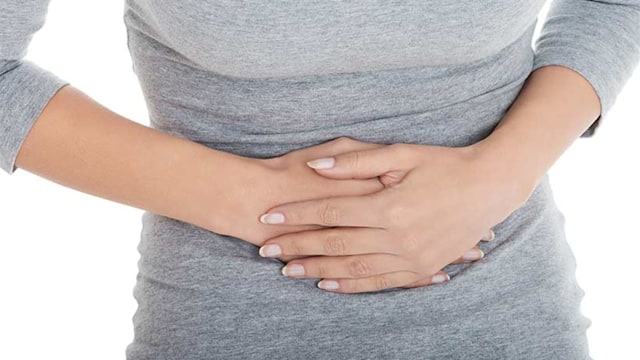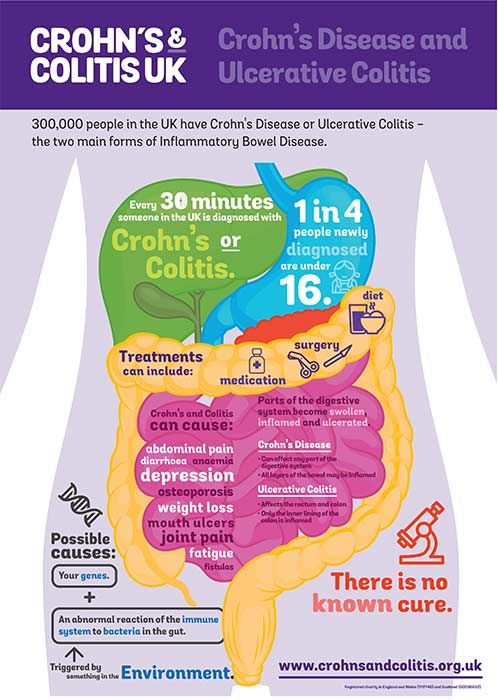At least 300,000 people in the UK have Inflammatory Bowel Disease, with the two main forms being Crohn's Disease and Ulcerative Colitis, chronic conditions that can cause inflammation and ulceration in the digestive symptom and colon. Sam Faiers and Rylan Clark-Neal are among the stars who have previously spoken about their personal and family experiences with the condition, and have both united to raise awareness and vital funds for charity Crohn's & Colitis UK. Discover the warning signs to look out for this World IBD Day (19 May 2017) with our need-to-know guide to diagnosing and managing the conditions.
What are the symptoms of IBD?
Symptoms of Inflammatory Bowel Disease can vary from person to person, and may change over time, with periods of good health alternating with times when your symptoms are more active. The main symptoms of IBD are…
- Diarrhoea
- Cramping pains in the abdomen
- Tiredness and fatigue
- Feeling generally unwell
- Loss of appetite and loss of weight
- Anaemia
- Mouth ulcers
How is IBD diagnosed?
If you suffer from any of the symptoms above, it is important to visit your doctor who will carry out some tests and investigations to make sure you have a correct diagnosis. Doctors are likely to use the same tests to diagnose both Crohn's Disease and Ulcerative Colitis; these can include blood and stool tests, endoscopies, X-Rays, ultrasounds and MRI scans.
MORE: See the latest health and fitness news here
What is the treatment for IBD?
Treatments for IBD depend on how severe the symptoms are and how much of the gut is affected. Anti-inflammatory drugs including steroids, 5ASAs and immunosuppressants like methotrexate and ciclosporin are often used, while surgery is sometimes recommended for some people diagnosed with IBD.
It is important to visit your GP for professional medical advice if you suspect you have IBD. For more information and support visit crohnsandcolitits.org.uk.










